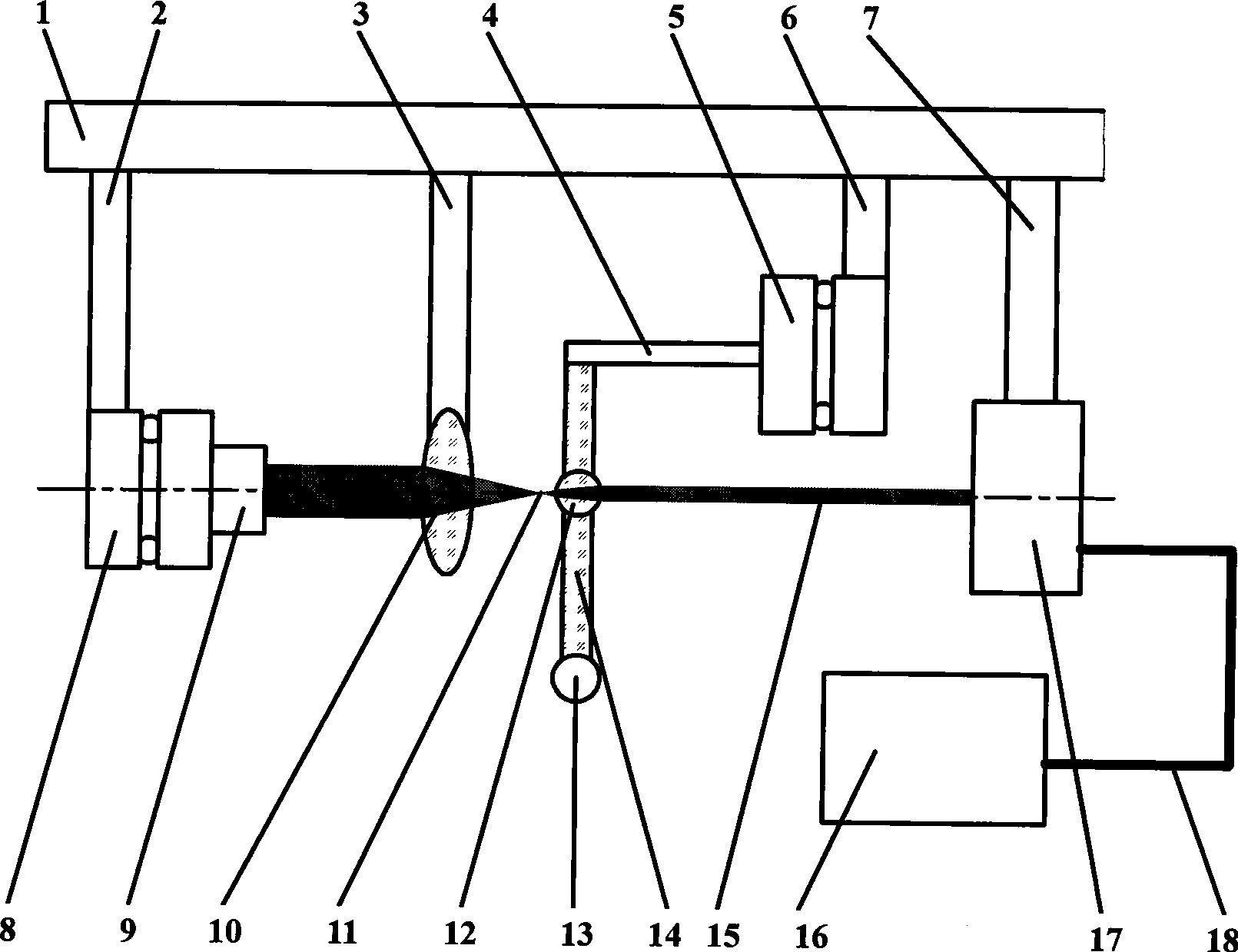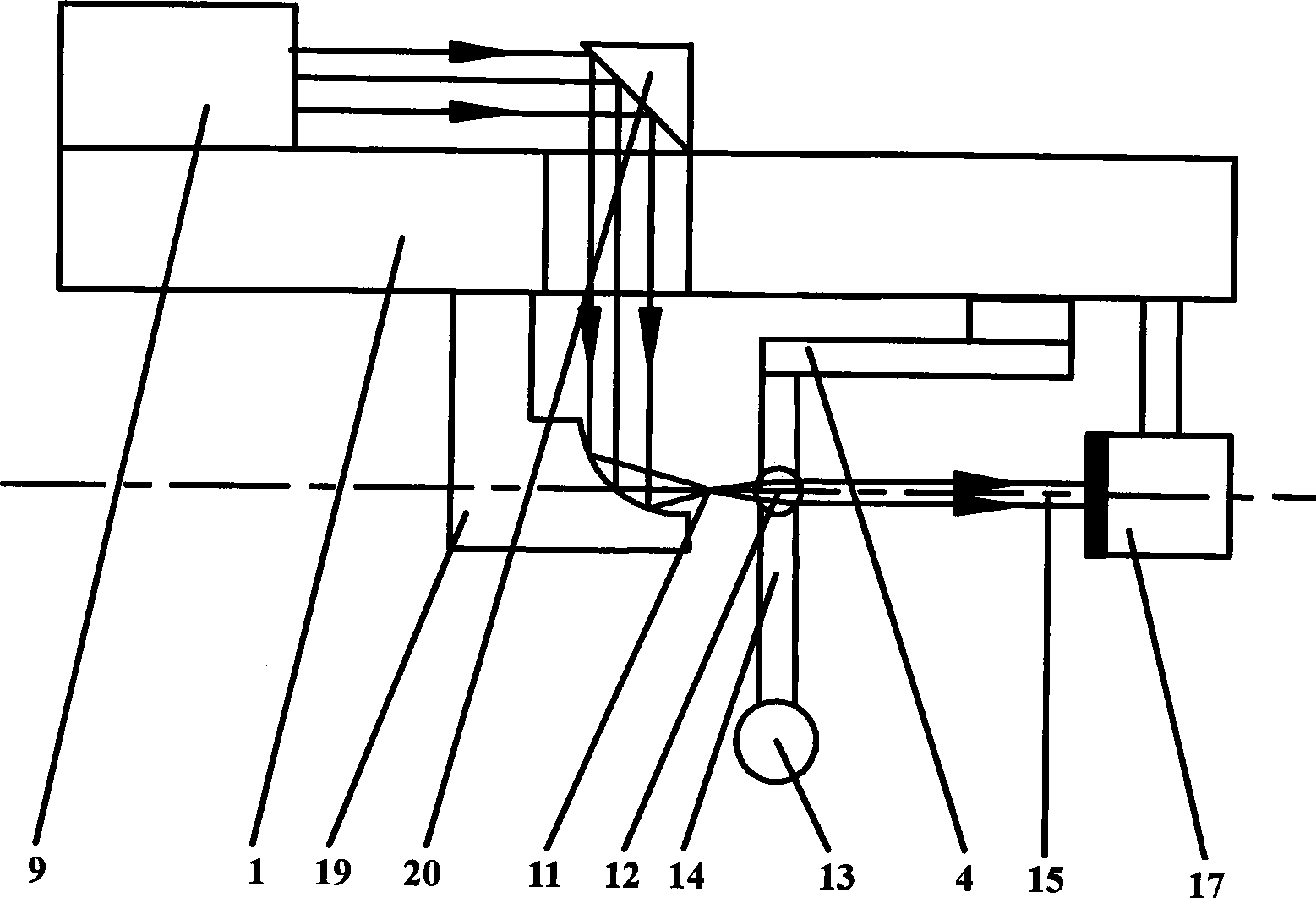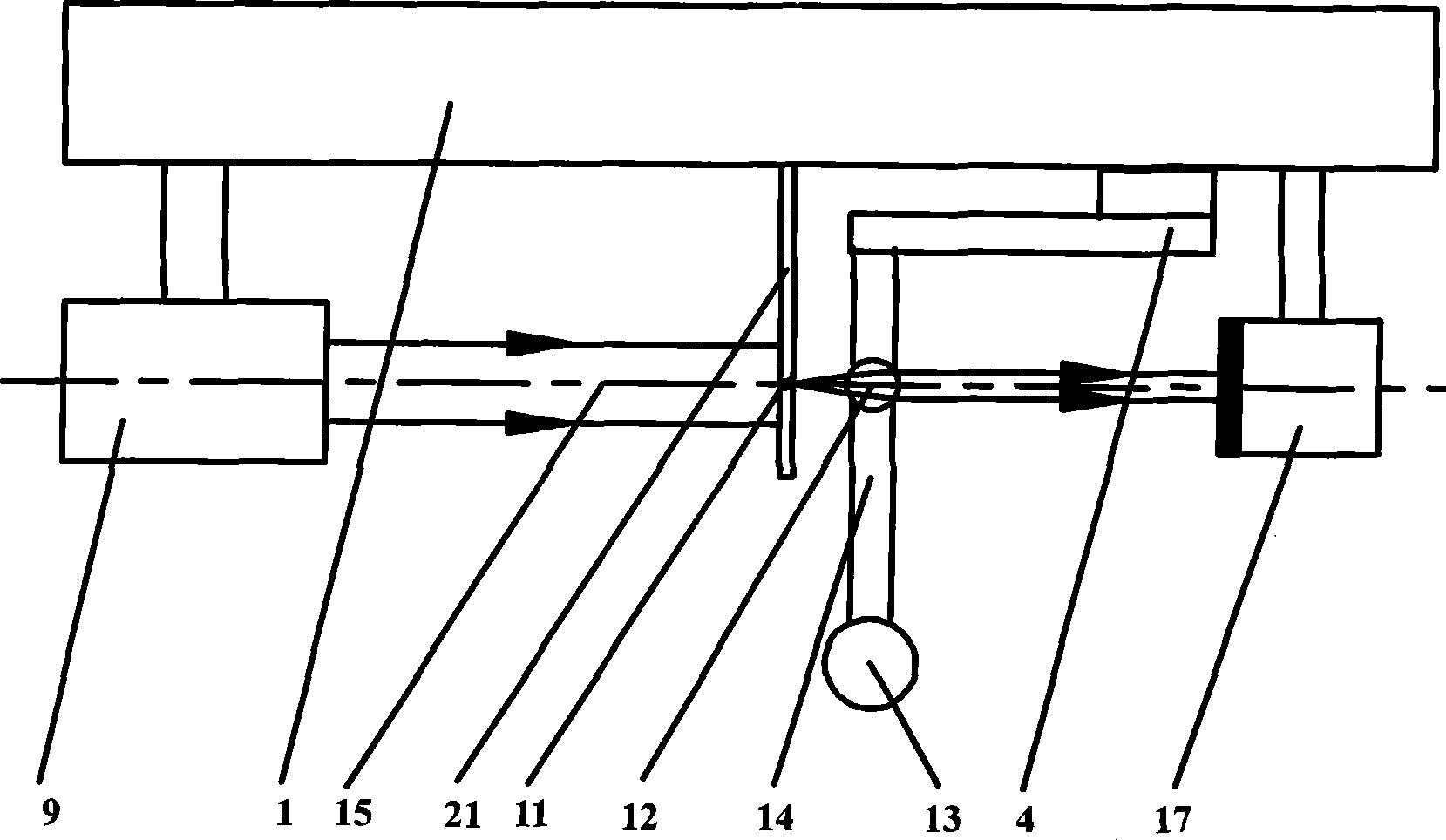Sensing method and device for micro inner cavity size and three-dimensional coordinate based on two-dimensional micro-focus collimation
A technology of three-dimensional coordinates and sensing devices, applied in measurement devices, optical devices, instruments, etc., can solve the problems of increased data volume, difficulty in adjusting the imaging optical path, and difficulty in distinguishing the polarity of measurement elements, and achieves efficient extraction and system structure. Simple, easy to measure effects online
- Summary
- Abstract
- Description
- Claims
- Application Information
AI Technical Summary
Problems solved by technology
Method used
Image
Examples
Embodiment Construction
[0035] A micro-cavity size and three-dimensional coordinate sensing method based on two-dimensional micro-focus collimation, through the following steps to realize the sensing of the three-dimensional displacement of the optical fiber probe measuring rod:
[0036] ① Combining a part of the fiber optic probe rod with the microspherical biconvex lens;
[0037] Since the three-dimensional displacement monitoring of the optical fiber probe measuring rod 14 is to be realized by establishing a two-dimensional micro-focus collimated imaging optical path of a point light source, it is necessary to use a microspherical double-convex lens 12 with a small focal length in combination with the optical fiber probe measuring rod 11, so that They have the same motion state, and the spherical radius of the microspherical double-convex lens 12 is usually between 20 μm and 100 μm, so its curvature is 5×10 4 m -1 ~10 4 m -1 between. Optical fiber probe measuring rod 14 is a measuring rod usin...
PUM
 Login to View More
Login to View More Abstract
Description
Claims
Application Information
 Login to View More
Login to View More - R&D
- Intellectual Property
- Life Sciences
- Materials
- Tech Scout
- Unparalleled Data Quality
- Higher Quality Content
- 60% Fewer Hallucinations
Browse by: Latest US Patents, China's latest patents, Technical Efficacy Thesaurus, Application Domain, Technology Topic, Popular Technical Reports.
© 2025 PatSnap. All rights reserved.Legal|Privacy policy|Modern Slavery Act Transparency Statement|Sitemap|About US| Contact US: help@patsnap.com



